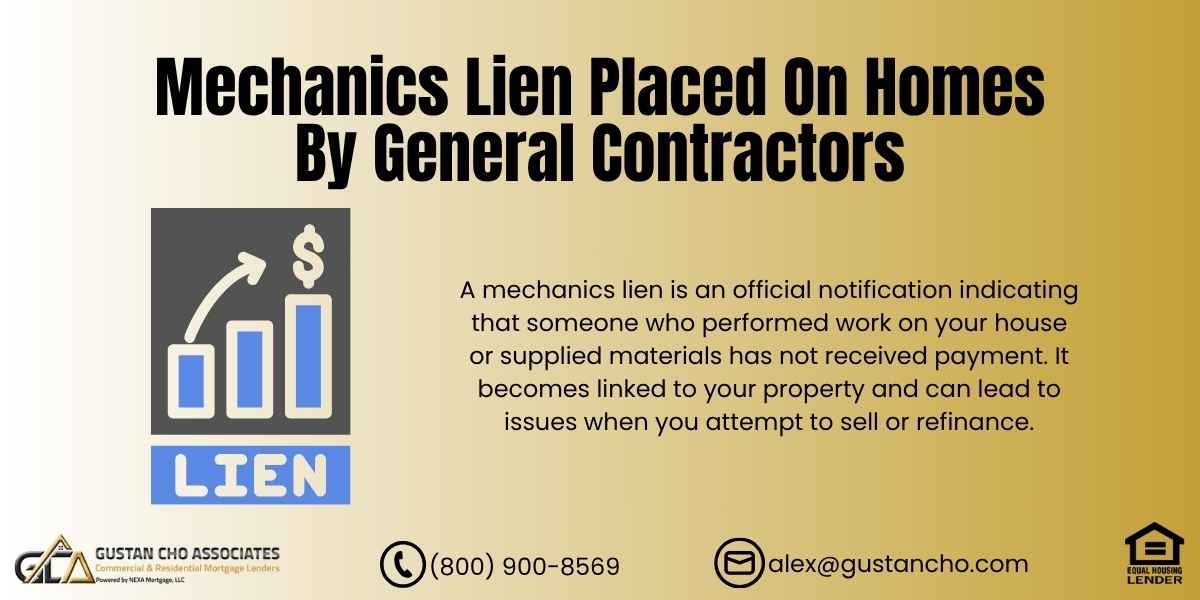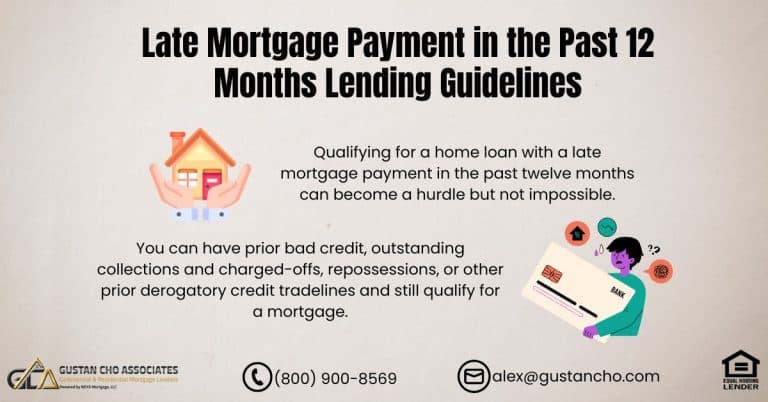A mechanics lien on your home can feel like a roadblock you never saw coming. You hire a contractor, pay them in full, and think the job is done. Months later, you find out their subcontractors or suppliers were never paid—and now there’s a legal claim attached to your property title.
For homeowners, this is a confusing, stressful, and frightening experience. A mechanics lien can:
- Delay or block a refinance
- Stop you from selling your home
- Lead to expensive legal issues if it’s not handled correctly
The good news: a mechanics lien on your home doesn’t have to ruin your plans. This 2025 guide explains what a mechanics lien is, how it happens, how it affects your mortgage or sale, and—most importantly—how to remove it fast and protect yourself in the future.
Important: This article is for informational purposes only and does not constitute legal advice. Mechanics lien laws are state-specific. Make sure to check with a lawyer in your state for any legal advice.
Quick Answer: Mechanics Lien on Your Home (What to Do Next)
A mechanics lien is a legal claim filed against your property by a contractor, subcontractor, or supplier who says they weren’t paid. Even if you paid the general contractor, a lien can still be filed if the subcontractors or suppliers weren’t paid. A lien can block a refinance or sale until it’s released, settled, bonded off, or paid at closing.
Do These 3 Things Today:
- Pull the lien from your county recorder and verify the filer, amount, property address, and dates.
- Request a written payoff + a signed lien release (or “release of lien”) from the lienholder before paying anything.
- Choose the fastest path to clear title: settle for less, pay it off, bond it off, or escrow/pay it at closing (sale/refi), depending on your situation.
If you’re refinancing or selling soon, your lender/title company will usually require the lien to be cleared, escrowed, or bonded off before closing can proceed.
What Is a Mechanics Lien on Your Home?
A mechanics lien is a legal claim on your property made by a contractor, subcontractor, or supplier who hasn’t been paid for their work or materials. It attaches directly to your property title, making it impossible to sell or refinance until the lien is cleared.
For example:
- You hire a general contractor to remodel your kitchen.
- They bring in electricians, plumbers, and suppliers
- You pay the general contractor in full.
- The contractor fails to pay those subcontractors.
- A subcontractor puts a mechanics lien on your house.
Even though you have already paid, the unpaid subcontractor legally has the right to make a claim against your property. This is why mechanics liens are so frustrating for homeowners.
Mechanics Lien on Your Home? We Can Help You Navigate It
Learn how to handle a mechanics lien placed by a general contractor and protect your home.
Why Do Mechanics Liens Happen?
Mechanics liens usually come from payment disputes. Common causes include:
- Contractor mismanagement – The general contractor uses your money for other projects or debts.
- Cash flow issues – The contractor doesn’t have enough funds to pay all subcontractors on time.
- Disagreements over work – A subcontractor claims they weren’t fully paid for completed work.
- Poor contracts – No written agreement or clear payment terms between contractors and subs.
Unfortunately, homeowners are the ones who end up paying the price.
How a Mechanics Lien on Your Home Affects You
A mechanics lien isn’t just a piece of paper—it creates serious problems:
- Title Issues – An active mechanics lien on your home prevents title companies from issuing insurance, complicating any potential sale or refinance. This can create significant hurdles for homeowners looking to transfer ownership or secure financing.
- Refinance Problems – When attempting to refinance, lenders mandate a clear title free from any liens. If a mechanics lien is present, it can result in the denial of refinancing applications or additional delays in the process.
- Sale Delays – Prospective buyers often hesitate to engage with properties encumbered by unresolved legal claims, such as mechanics liens. This can lead to prolonged negotiations or cause potential buyers to withdraw their offers altogether.
- Public Record – Mechanics liens are publicly recorded with the county, which means they remain visible to potential buyers and future lenders. This public nature can deter interested parties and negatively impact marketability.
- Possible Court Action – If the debt linked to the mechanics lien isn’t paid, the lienholders can take legal steps to get their money. This can worsen things and lead to more legal troubles or costs for the homeowner.
A mechanics lien on your home might not mess with your credit score immediately, but if it leads to a lawsuit or a judgment, it can hurt your credit. Problems like that can make it tougher to borrow money down the line and impact your overall financial situation.
Can You Still Get a Mortgage With a Mechanics Lien?
Yes, but it’s harder. Many lenders refuse loans when a lien appears during the title search. At Gustan Cho Associates, we work with homeowners every day who have liens on their homes.
Options may include:
- Escrowing lien funds during refinance or sale until it’s resolved.
- Paying off the lien at closing as part of the loan proceeds.
- Negotiating a settlement before the mortgage process is completed.
If you’re stuck, the key is working with a lender who understands navigating these complex situations.
Dealing With a Mechanics Lien on Your Home? Know Your Rights and Options
Mechanics liens can cause major issues—understand how to resolve them and protect your property.
Homeowner Decision Path: Pick the Fastest Way to Clear a Mechanics Lien
Use this quick path based on what you’re trying to do right now:
If You’re Trying to Refinance
- Goal: clear title fast so the lender can close.
- Fastest options:
- Pay/settle the lien and record a release, or
- Bond off the lien (moves the claim off your title), or
- Escrow/pay it at closing (only if your lender/title company allows it).
If You’re Trying to Sell
- Goal: close on time without losing the buyer.
- Most common path: the lien is paid from sale proceeds at closing, or funds are escrowed until the lienholder signs a release.
- If the lien is disputed: ask your attorney/title company about bonding off so the sale can move forward.
If You’re Buying a Home That has a Lien
- Goal: do not take the title with an unresolved claim.
- Best practice: require the seller to pay it off, settle it, or bond it off and provide a recorded lien release as a condition of closing.
If the Lien is Valid vs. Disputed
- Likely valid: correct property, correct party, work/materials match your project → pursue payoff or settlement + recorded release.
- Disputed/possibly invalid: wrong amount, wrong dates, no proper notice (state-specific), or work not performed → talk to a real estate attorney about challenging it or bonding it off to clear title while you dispute.
If the Lien is Small vs. Large
- Small lien: settlement is often the quickest solution (get the release in writing before payment).
- Large lien: compare settlement vs. bonding off vs. paying at closing to avoid draining cash unnecessarily.
Can You Sell a Home With a Mechanics Lien?
Yes, but it’s tricky. Here’s how it usually works:
- The title company finds the mechanics lien on your home.
- They require the seller to put the lien amount in escrow.
- The sale closes, but the funds stay in escrow.
- Once the lien is settled, the money goes to the lienholder—or back to the seller if the lien was invalid.
This process allows the sale to move forward, but creates delays and requires legal review.
How to Remove a Mechanics Lien From Your Home
If you already have a mechanics lien, don’t panic. Here’s a step-by-step process:
Step 1: Get a Copy of the Lien
To begin the process, obtain a copy of the lien from your county recorder’s office. Once you have the document, carefully review it for any errors, verify the amount stated, and check the information regarding who filed it.
Step 2: Talk to the Contractor
In the next step, engage with the general contractor to arrange for the payment to the subcontractor or supplier. It’s important to request proof of payment or a lien release to ensure that the transaction is properly documented and that there are no outstanding claims against the property.
Step 3: Negotiate Settlement
When negotiating a settlement with lienholders, it’s important to remember that many are often willing to accept less than the full amount owed. Always get any agreements in writing to ensure clarity and protect your interests.
Step 4: Hire an Attorney (if needed)
In Step 4, if the lien on your property is fraudulent or exaggerated, it is wise to hire an attorney to contest it in court. An attorney can provide the necessary legal assistance to challenge the validity of the lien. Additionally, you may have the option to “bond off” the lien, freeing your title and regaining control of your property.
Step 5: Record a Lien Release
After the lien has been settled or paid, the lien claimant needs to file a release to officially remove the lien. Following this, it is important to follow up and confirm that the lien has been successfully removed from your property record.
Don’t Let a Mechanics Lien Derail Your Homeownership Plans
Learn how to negotiate, remove, or pay off the lien to move forward with your mortgage.
What Is a Lien Waiver?
A lien waiver is basically a paper that a contractor, subcontractor, or supplier signs to say they’ve been paid and won’t come after you for a lien. It’s a good move to get this sorted out before you make that last payment.
- Ask your general contractor for a list of all subcontractors and suppliers.
- Collect lien waivers from each one.
- Keep proof of payment.
This is the single best way to protect yourself from a mechanics lien on your home.
Mechanics Lien Laws by State
Lien rules vary widely depending on your state. Here are a few examples:
Illinois
In California, if you want to file a mechanics lien, you first need to send a preliminary notice to the property owner. This step makes sure everyone knows what work is being done and that there’s a chance of liens popping up to get paid.
California
In California, if you’re dealing with a mechanics lien, you first need to send a preliminary notice to the property owner before you file the lien. This step ensures everyone knows what work is happening and that liens might come into play to secure payment.
Texas
There are tight deadlines for filing mechanics liens in Texas, which means you have to submit your claims within certain time limits. If you miss these deadlines, your lien can get thrown out, so acting quickly is crucial.
Florida
In Florida, subcontractors must file their mechanics liens within 90 days of completing their last work on a project. This time limit encourages prompt action among subcontractors to secure their rights to payment.
New York
In New York, mechanics liens generally expire one year after being filed unless extended by a court order. This one-year limit means lien holders must be vigilant about following up and potentially renewing their claims to ensure they remain enforceable.
Always check your state’s laws before starting a major renovation.
Preventing a Mechanics Lien on Your Home
Prevention is always cheaper than removal. Tips:
- Get everything in writing (contract, scope, payment schedule).
- Request preliminary notices from contractors and subs.
- Collect lien waivers with every payment.
- Pay by check or credit, not cash.
- Keep a record of all invoices and receipts.
If you’re financing renovations with an FHA 203k rehab loan or similar program, lenders often require lien waivers before releasing funds—an extra layer of protection.
Cost to Bond Off a Mechanics Lien
If you prefer not to pay a mechanics lien directly, you can bond it off by obtaining a surety bond that generally covers 1.5 to 2 times the lien amount. For instance, if you have a $20,000 lien, you would need to secure a $30,000 bond. The cost of this bond typically ranges from 1% to 3% of its value per year, so at a rate of 2%, you would be looking at an annual expense of around $600.
By bonding off the lien, you can clear your property title while resolving the underlying dispute. This process allows you to maintain property ownership without paying the lien amount upfront.
Buying a Home With a Mechanics Lien
If you’re considering a property with a lien:
- Ask the seller to resolve the lien before closing.
- Work with a title company that can escrow funds if necessary.
- Never take ownership until the title is clear.
Sometimes, a lien may not be a deal-breaker—but you must protect yourself legally.
Mechanics Lien vs. Judgment Lien: What’s the Difference?
A mechanics lien is a legal way for contractors, subcontractors, or suppliers to claim payment when they haven’t been paid for their work or the materials they provided on a project. It acts like a safeguard, giving these folks a legal right to get their money for their contributions.
A mechanics lien on a property can make selling or refinancing it a pain, since it needs to be sorted out first.
Conversely, a judgment lien comes from a court decision after a creditor takes a debtor to court for unpaid debts. This lien is the creditor’s way of saying they have a claim on the debtor’s property to help get back what’s owed. Like a mechanics lien, a judgment lien can affect the property title. This means you must clear it up before refinancing or selling the property. It’s important to address both types of liens when dealing with real estate transactions.
Final Thoughts: Don’t Let a Mechanics Lien Stop You
A mechanics lien on your home can feel like a nightmare, but it doesn’t have to end your plans. With the right steps—lien waivers, negotiations, bonding off, or refinancing with escrow—you can move forward.
At Gustan Cho Associates, we focus on helping homeowners and buyers tackle title problems, like mechanics liens. We’re licensed in all 50 states and don’t have those extra lender rules, so we can close loans that other banks and lenders can’t handle.
Call us at 800-900-8569 text us for a faster response, or email alex@gustancho.com. We’re available 7 days a week, evenings, weekends, and holidays.
Don’t let a mechanics lien block your refinance or sale. Let our team help you clear the lien, close your loan, and move forward with confidence
Frequently Asked Questions About Mechanics Lien on Your Home:
What is a Mechanics Lien on Your Home?
A mechanics lien is a legal claim recorded against your property by a contractor, subcontractor, laborer, or supplier who says they weren’t paid for work or materials that improved your home. It “clouds” your title, which can block a sale or refinance until it’s released, settled, bonded off, or paid.
Why is There a Lien on My House if I Already Paid the Contractor?
In many states, subcontractors and suppliers can file a lien even if you paid the general contractor, because the law protects unpaid parties who contributed labor/materials to your property. That’s why lien waivers and tracking who gets paid (subs/suppliers) matter before final payment.
Can a Subcontractor File a Mechanics Lien if I Never Hired Them?
Yes, often. Subcontractors and material suppliers may have lien rights even without a direct contract with the homeowner, as long as they provided qualifying labor/materials to the property and complied with state notice/deadline requirements. State requirements vary, so confirm your local rules with a title company or attorney.
Can I Refinance My Home with a Mechanics Lien on it?
Sometimes—but it’s harder. A mechanics lien typically prevents new title insurance from being issued until the lien is cleared or addressed. Common solutions include paying/settling the lien, using loan proceeds (often a cash-out refinance) to satisfy it, or using other approved methods your lender/title company will accept.
Can I Sell My Home if There’s a Mechanics Lien?
Yes, but you generally must clear title to close. In many sales, the lien is paid from the seller’s proceeds at closing (or handled through escrow/bonding, depending on the situation and state). Buyers and their lenders typically require a clear title before ownership transfers.
How do I Remove a Mechanics Lien From My Home?
Common removal paths include: (1) negotiate a settlement and obtain a signed lien release, (2) pay the lien and record the release, (3) challenge an invalid lien in court, or (4) “bond off” the lien so it no longer clouds title while the dispute continues.
Do Mechanics Liens Expire or Go Away on Their Own?
Sometimes, but it depends on state deadlines. Many states require the lienholder to enforce the lien (usually by filing a lawsuit) within a set time period, or the lien can become unenforceable/expire. Because deadlines vary widely, check your state’s rules and don’t assume it will disappear automatically.
Does a Mechanics Lien Affect My Credit Score?
A mechanics lien is recorded in county property records and mainly affects your title, not your credit score directly. However, if the dispute becomes a lawsuit and results in a judgment or other credit reporting, it could affect borrowing later. Treat it as a title emergency if you plan to sell or refinance.
How do I Fight or Dispute a Mechanics Lien I Think is Wrong?
Start by pulling the recorded lien and checking for errors (property info, amount, claimant, dates) and whether state notice/deadline rules were followed. Then dispute it in writing and consult a real estate attorney about filing to vacate/remove an invalid lien or bonding it off to clear title while you contest it.
What is a Lien Waiver—and Which One Should I Ask for?
A lien waiver is a signed document in which a contractor/sub/supplier waives their lien rights for the amount paid. Many states use conditional waivers (effective after payment clears) and unconditional waivers (effective immediately). Best practice: Collect lien waivers with each payment, especially the final one.
This blog about “Mechanics Lien on Your Home? Learn How to Remove It Fast” was updated on January 15th, 2026.
Mechanics Lien on Your Home? Here’s What You Need to Do
Protect your home and avoid future issues by understanding how to clear a mechanics lien.










In CA FHA 203(K) Contractor, who performed $120k on an improper permit, failed to list 6-permit required tasks, failed to have work inspection, contractor filed mechanic’s lien and demand in arbitration. Should the homeowner lose in arbitration can contractor enforce mechanic’ s lien. HUD is investigating for fraud.
The contractor should not be getting paid. You can file a claim against your contractor. He would not have gotten approved if he was not licensed, insured, and bonded. File a claim against his bond and insurance company. The homeowner should win 100%.